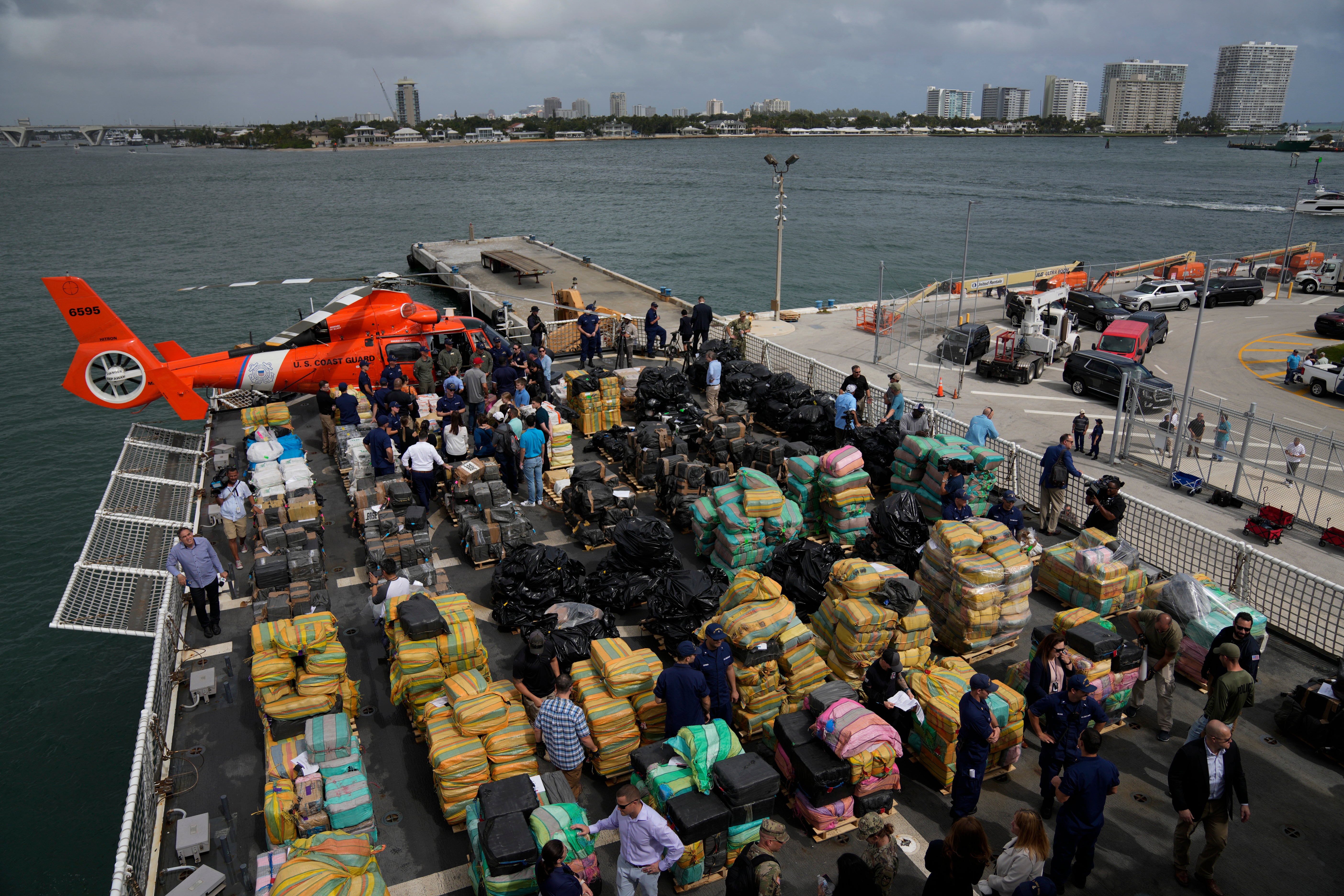U.S. Coast Guard offloads $1 billion worth of narcotics
A U.S. Coast Guard vessel offloaded Thursday more than 30 metric tons of cocaine and marijuana worth over $1 billion that was seized at sea during a months-long deployment off the coast of South America

Your support helps us to tell the story
From reproductive rights to climate change to Big Tech, The Independent is on the ground when the story is developing. Whether it's investigating the financials of Elon Musk's pro-Trump PAC or producing our latest documentary, 'The A Word', which shines a light on the American women fighting for reproductive rights, we know how important it is to parse out the facts from the messaging.
At such a critical moment in US history, we need reporters on the ground. Your donation allows us to keep sending journalists to speak to both sides of the story.
The Independent is trusted by Americans across the entire political spectrum. And unlike many other quality news outlets, we choose not to lock Americans out of our reporting and analysis with paywalls. We believe quality journalism should be available to everyone, paid for by those who can afford it.
Your support makes all the difference.A U.S. Coast Guard vessel on Thursday offloaded more than 30 metric tons of cocaine and marijuana reportedly worth over $1 billion that was seized at sea during a months-long deployment off the coast of South America.
The haul of illegal narcotics brought home by the U.S. Coast Guard Cutter James was one of the biggest in recent memory, a reflection of increasingly sophisticated U.S. arsenal that includes powerful drones and special infrared cameras that can detect heat from small cocaine-laden vessels.
But it also highlights a recent surge in narcotics coming from Colombia, a close U.S. ally and the world's top producer of cocaine.
The Biden administration's top anti-narcotics officials traveled to South Florida to welcome back the vessel's crew and tout the Coast Guard's role interdicting drugs before they reach American streets.
“We are hitting the drug traffickers where it hits them most: their pocketbooks,” said Dr. Rahul Gupta, head of the White House's Office of National Drug Control Policy.
Gupta said the Biden administration is seeking to increase the U.S. government’s budget to build up the nation’s addiction treatment infrastructure and reduce the supply of synthetic opioids like fentanyl and other drugs.
But the record busts of late by the Coast Guard, federal law enforcement and partner nations also underscores how little the flow of cocaine coming from Latin America has eased since President Richard Nixon declared war on drugs a half century ago.
Coca cultivation in Colombia in 2020 soared to 245000 hectares (945 square miles), enough to produce 1,010 metric tons of cocaine, according to the White House's latest report on harvesting trends in the Andean region. As recently as 2014, potential production was less than half that amount. Production in Peru and Bolivia has also steadily risen.
Admiral Karl Schultz, the U.S. Coast Guard commander, said those numbers would be even higher, and the destabilizing impact on the region from transnational criminal organizations even worse, if not for the U.S. interdiction efforts.
“Does it matter? It absolutely matters because it kind of keeps a lid on things,” he said.
He was echoed by Ambassador Todd Robinson, who leads the State Department's bureau of International Narcotics and Law Enforcement Affairs.
“It's not just always about seizures,” said Robinson, who previously served as the U.S.' top diplomat in Guatemala and Venezuela, two major transit zones for Colombian cocaine. “It's also about building our partners' capacity.”